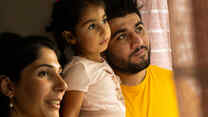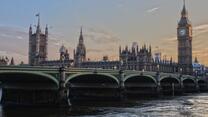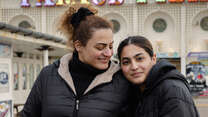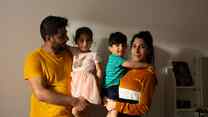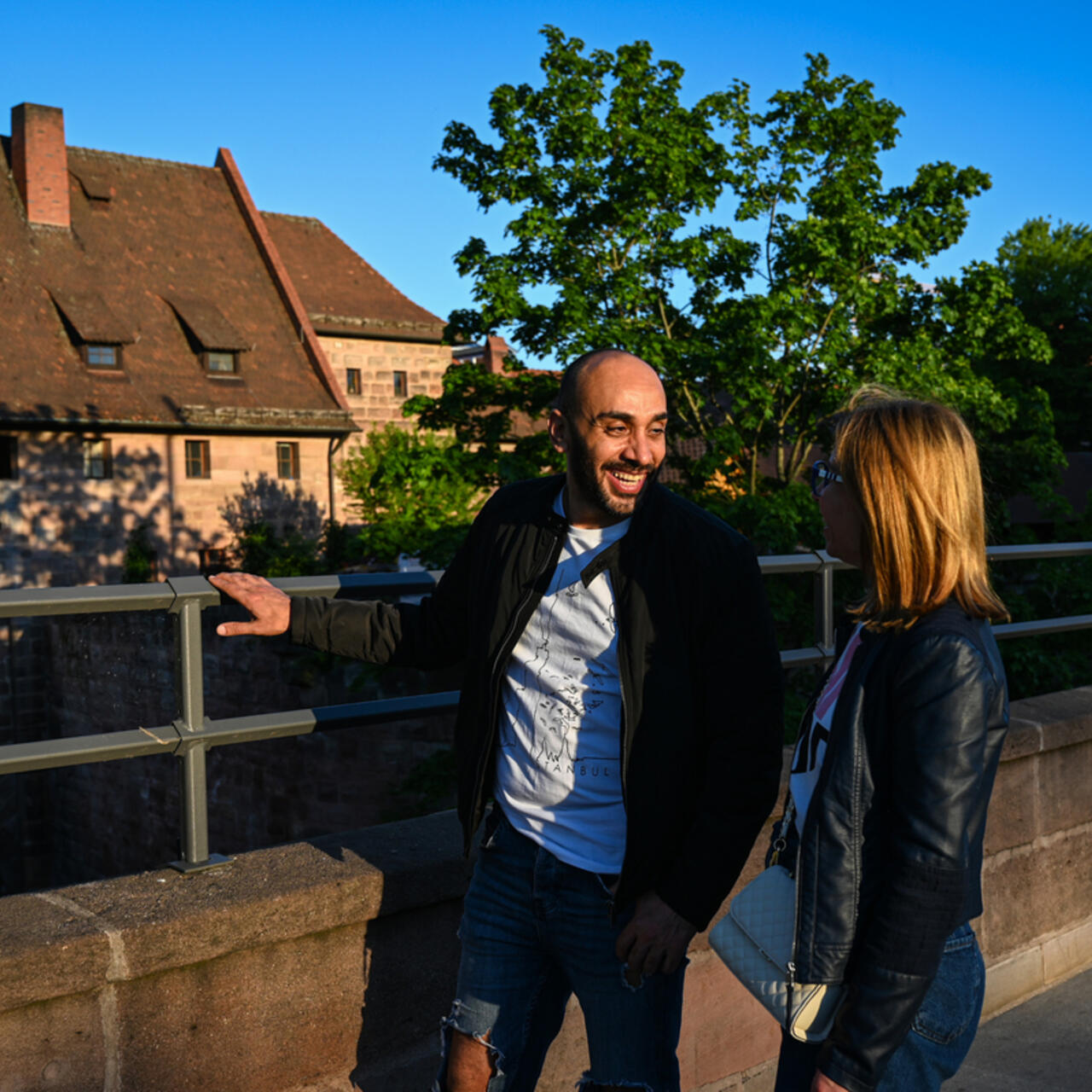
Refugee resettlement is an internationally-agreed framework, which aims to provide a pathway to safety and a durable solution for refugees who are unable to return home or successfully integrate into their country of displacement.
Countries, such as the UK, EU member states, Canada, and the US, voluntarily agree to welcome recognised refugees who have already fled their countries of origin, are particularly vulnerable, and cannot receive the support they need in their host countries. This process provides an accessible pathway as there is currently no dedicated refugee visa that would allow refugees to travel safely and find protection in another country.
However, this process is often slow, taking months or even years in many cases. The IRC is committed to working with the UK government to expand their resettlement pledge and ensure existing pledges are honoured.
Read on to understand more about resettlement and what the UK can do to support refugees through this crucial pathway...
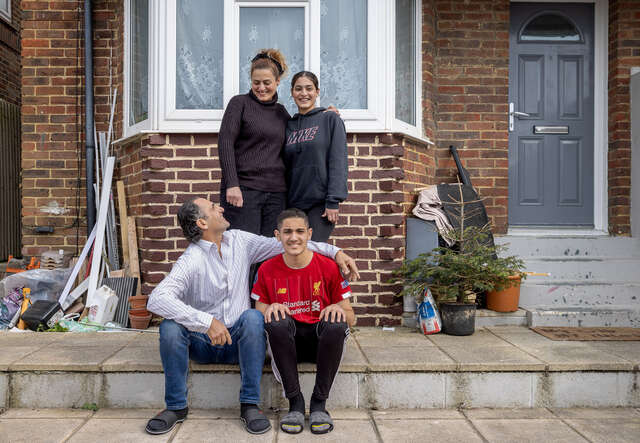
Who is a refugee?
A refugee is someone who has been forced to leave their home after fleeing war, persecution and political upheaval. Refugees are unable to return home until conditions are safe for them again.
They become refugees when they cross borders and seek safety in another country and are protected by international law under the 1951 United Nations Refugee Convention, of which the UK is a signatory.
What is refugee resettlement?
Refugee resettlement provides a durable solution for refugees in particularly vulnerable situations, and who do not have adequate support in their host countries. People are identified for resettlement according to the UN refugee agency’s (UNHCR) protection criteria. For instance, a person with acute medical needs that cannot be met in the country of displacement.
It is also currently one of the only safe routes that the UK government supports. It therefore remains a large focus for the IRC in the UK as we try to reduce dangerous journeys in search of protection, whilst continuing to advocate for the UK to uphold the right to seek asylum.
Today, 76% of the world’s refugees live in low and middle-income countries, who often face domestic hardships that make it harder to offer protection, while 70% live in countries neighbouring those they had to flee.
Through resettlement, some of the most vulnerable refugees in these regions are transferred to safe countries elsewhere - such as the UK, Canada, EU states or the US - where they are granted a pathway to permanent residence.
How do refugees get resettlement in the UK?
The UK has a small number of schemes that allow for people to travel from a country they are displaced into, to the UK. The government calls these ‘safe and legal routes’, one of which is resettlement. In the majority of cases, the person has to have left their country of origin already to access one of these routes.
Resettlement is important because it helps people with specific heightened needs that cannot be met where they are displaced to access a durable solution.
However, refugees cannot apply for a resettlement place, they can only hope to be selected among a much larger caseload of people who have registered with the UNHCR. Nor can they choose which country they will be resettled to. Less than 1% of the world’s refugees will ever be resettled.
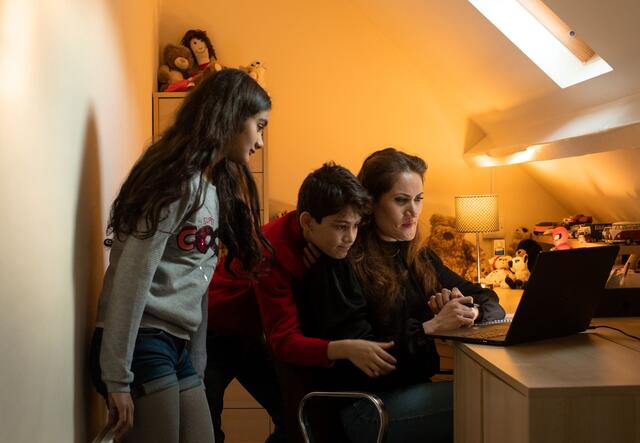
The UNHCR criteria includes those who have legal and physical protection needs, survivors of violence and torture, medical needs, women at risk, family reunification, children and adolescents, elderly refugees and lack of local integration prospects.
The resettlement schemes currently available are the UK Resettlement Scheme (UKRS) and the Afghan Citizens Resettlement Scheme (ACRS) Pathway 2. These are run in cooperation between UNHCR and the government.
The UK resettles fewer refugees than other European countries and lags behind in resettlement figures compared to nations such Germany and France.
Why is resettlement important?
Even long after their departure, many displaced people still cannot return to their country of origin as they continue to face dangers, such as violence or persecution. This may make return impossible.
In the regions they have fled to - especially those that host large numbers of refugees - people and families are often forced to live in camps or substandard shelters for long periods of time. These states are demonstrating immense generosity, but they often do not have the resources to cater for people’s complex needs, guarantee successful integration, or provide lasting protection.
In some cases, these countries cannot uphold the fundamental rights of refugees - and particularly of those with specific vulnerabilities, at whom resettlement is aimed. A large majority of people in need of resettlement are women and girls, survivors of violence and/or torture, and people with specific legal and/or physical protection needs.
For refugees, resettlement can be a lifeline: it gives them a chance to find a stable new home, take back control over their own life and become self-reliant, and integrate into a society that recognises their rights.
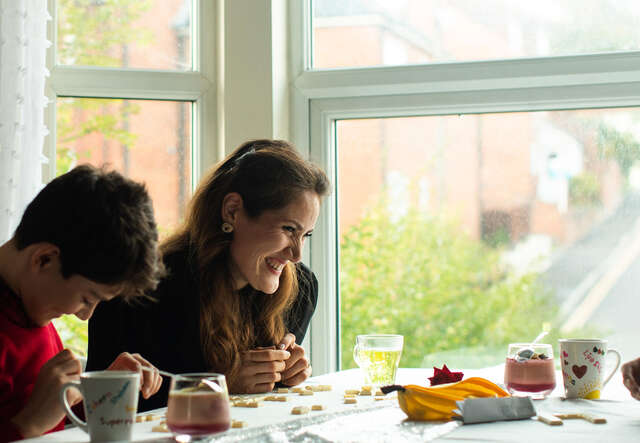
For states, it is an important tool to show international solidarity with other countries and people in need of international protection, to share responsibility for refugees in the international community, and alleviate problems impacting the first country of asylum, improving the situation for those remaining there. This way, resettlement can encourage and enable host countries to keep offering protection to other refugees in need.
For receiving communities, resettlement can be greatly beneficial as it allows for the effective reception and integration of refugees. If adequately supported, refugees often thrive and contribute immensely to their communities, building their families and careers, and gaining citizenship.
What are current resettlement needs?
An estimated 2 million particularly vulnerable refugees will be in need of resettlement in 2024, a figure that has more than doubled since 2010, and an increase from 1.47 million in 2022.
For the seventh year in a row, Syrian refugees have the highest global resettlement needs, followed by refugees from Afghanistan, the Democratic Republic of the Congo, South Sudan, and Myanmar. Meanwhile, the situation in many refugee-hosting countries such as Turkey, Lebanon and Libya continues to worsen.
For example, in Lebanon, nine out of ten refugee families live in extreme poverty, and 90% of its 1.5 million Syrian refugees need humanitarian aid. In Afghanistan, over 700,000 people were forced to flee their homes in 2021, adding to the 5.5 million people already displaced in recent years - with over 90% of registered refugees hosted in Iran and Pakistan and an important gap in resettlement from the region.
Turkey continues to host the largest number of refugees worldwide, including 3.6 million Syrian refugees, and needs along the Central Mediterranean Route, including Libya, are also increasing. The COVID-19 pandemic has also had a profound impact on these countries‘ capacity to ensure refugees‘ protection.
The number of people benefitting from essential resettlement schemes slumped to a record low in 2020, with fewer than 23,000 people resettled globally that year. Now, despite most COVID-related travel restrictions ending in 2021, resettlement has yet to return to its earlier pace and scale. In 2022, 114,300 refugees were resettled globally, but the gap between resettlement needs and actual efforts continues to grow.
Is resettlement the same as asylum?
No. Resettlement is separate and additional to asylum, and cannot replace a functioning asylum system. Whereas resettled refugees have already had their international protection needs recognised, people who reach the UK’s borders by their own means in search of safety must be guaranteed access to fair and full asylum procedures, regardless of country of origin.
Is resettlement the same as safe routes?
Resettlement is one form of ‘safe route’ which currently exists in the UK, while there are also others available.
Bespoke routes
Bespoke routes have been designed as a specific response to events in Afghanistan and Ukraine and have features similar to resettlement, but they are not the same thing. After the change of government in Afghanistan in 2021, two routes were established for refugees: the Afghan Citizens Resettlement Scheme (ACRS) and the Afghan Relocation and Assistance Policy (ARAP).
Following the outbreak of war in Ukraine in February 2022, three schemes were introduced for Ukrainian refugees: the Ukraine Family Scheme, Ukraine Sponsorship Scheme ('Homes for Ukraine'), and a third for those already in the UK. Successful applicants receive three years' leave, with no settlement path.
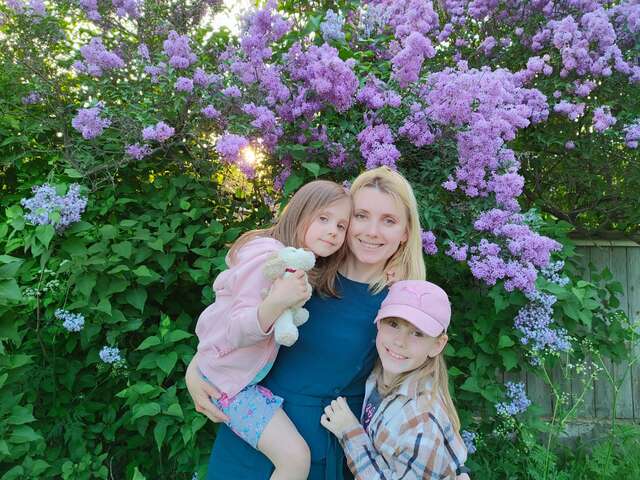
Family reunion
Family reunion is a rights-based route which is available to refugees who have already fled and been given refugee status in another country. Where a person has refugee status, they are entitled to bring their partner and dependent children to the UK if they meet the requirements. The family members who join them do not have to meet the refugee criteria, though in practice they often do. But there are limitations and there is currently no provision in the rules for children to apply to bring their parents or other family members to the UK.
What can the UK government do?
Resettlement is a crucial protection tool and a lifeline for the most vulnerable.
The UK government should make a new pledge to accept people under the UK Resettlement Scheme each year, as they previously did in 2019 when they committed to 5,000 places, a target that was not met.
The UK government should invest in the capacity of key actors in the resettlement process to deliver this commitment, such as local authorities, and vital infrastructure, such as emergency accommodation.
The UK has built good practices in refugee resettlement. The Syrian Vulnerable Persons Resettlement Scheme (VPRS), open from 2014-2021, offered safety to over 20,000 refugees and was recognised as a high standard globally. Despite experiencing delays due to COVID-19, the VPRS enabled local authorities, NGOs and local volunteers to grow capacity in infrastructure, services and expertise over time. However, the current UKRS scheme has seen far lower arrival numbers.
Efforts to expand resettlement must be additional to other pathways and the right to claim asylum.
The UK resettles fewer refugees than other European countries and lags behind in resettlement figures compared to nations such Germany and France.
Learn more
- Refugee facts and statistics
- “Living without my family is indescribable”: Masoma’s story
- Refugee FAQs: Key questions answered
What is the International Rescue Committee?
The International Rescue Committee (IRC) helps people affected by humanitarian crises to survive, recover and rebuild their lives. We deliver lasting impact by providing health care, helping children learn, and empowering individuals and communities to become self-reliant, always with a focus on the unique needs of women and girls.
Read more about the International Rescue Committee in the UK
